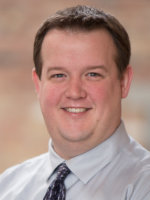I have just completed my first week of courses offered by the Utah Genealogical Association. Each year in January, UGA offers the Salt Lake Institute of Genealogy (SLIG) and the Salt Lake Institute of Genealogy Academy for Professionals. Each of these is a week long (5 days) offering of presentations around a single topic.
For SLIG, I took the Advanced Genealogical Methods course, coordinated by Dr Thomas Jones in the past, but this year it was coordinated by Paul K Graham. This is obviously a popular course as it was booked out within a day so I was very pleased that I enrolled as soon as the registrations opened.
There were 16 courses offered and they included:
- Technical writing for genealogists
- Introduction to genetic genealogy
- Advanced Hispanic research
- Advanced legal concepts for genealogy
- Early US church records.
The week began with a plenary session by David Rencher (Chief Genealogical Officer for FamilySearch) on A look at genealogy’s past, present and future. This was very good – informative, witty and somewhat though-provoking. David certainly kept the audience entertained.
The Advanced Genealogical Methods course had 6 presenters across the week.

Paul K Graham presented 11 sessions – with topics as diverse as local land records, evidence, research questions and plans, documenting, citations, correlating sources, immigration and migration and identifying female ancestors. The final session of the week was a discussion on continued advancement.
Richard (Rick) Sayre in five sessions covered Federal government documents, military and pension records, Federal land records and rural and urban maps.
Judy Russell‘s one presentation was on bringing the law to bear on genealogical problems and she used examples to illustrate why knowing the laws of the time is so important for understanding the context of an ancestral record.
Paul Woodbury, in his single presentation, took us through advanced DNA methods, in particular genetic networks and coverage.
Pamela Boyer Sayre had one presentation and she looked at the various kinds of archival research which could be undertaken.
Tom Jones gave two presentations – one on impoverished ancestors and ways to find their records and the second was an eye opener on writing genealogy.
There was optional homework most nights, usually based on the final session of the day. These were not trivial tasks and took some time to answer but the process was very educational. Before the sessions started the following day, the homework would be discussed.
Would I recommend this course to non-Americans?
While some of the presentations were very US focused, many were not. Regardless, ALL presentations provided research strategies which can be applied to any record, whether it be in the Uk or Australia, Europe or Ireland. For me, it opened my eyes for further possibilities for my own ongoing family history education and also showed me the very high level at which many US genealogists operate.
